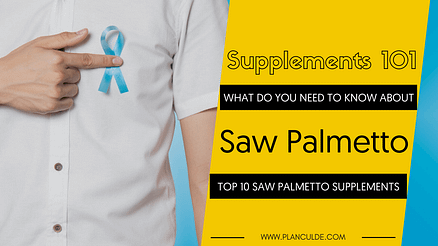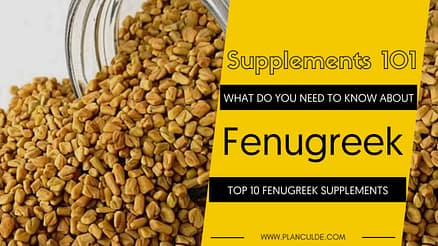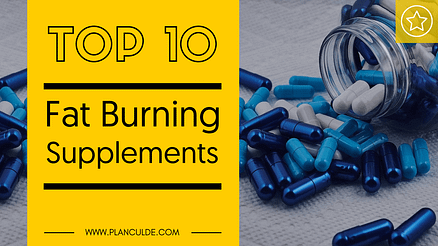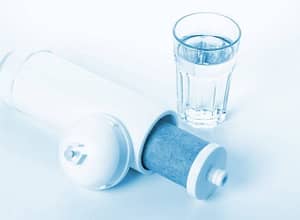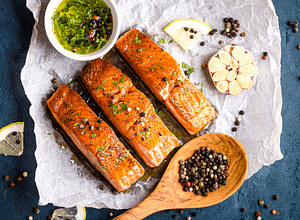Remember the Flinstone vitamin commercials from childhood? They promised to help you grow up healthy and strong (and they were yummy to boot). The vitamins and supplements industry is bigger than ever, with many companies making similar hefty claims.
Things aren’t just limited to vitamin tablets, either. You’ll find gummies, beverages, oral sprays, and an array of powders for making health shakes, among other things. But have you ever thought about supplements and safety?
Science indicates that quality multivitamins can help round out your nutritional intake and fill in any gaps in your diet, but what about the numerous other supplements that have become so popular? Are they all beneficial, or are you possibly doing more harm than good with long-term use?
What Are Supplements Made of?
First and foremost, the former question has to be answered on an individual, case-by-case basis, based on what vitamin or supplement is composed of, as well as your personal needs. Many dietary supplements are more than just added vitamins and minerals and might contain other ingredients that you may or may not need.
It’s of the utmost importance that you read all labels in their entirety, so you’re fully informed. You should also have a good idea of your health goals, and the supplements that can support those goals.
If you’re looking for increased energy, for example, you might benefit from a B-vitamin complex, but calcium supplements wouldn’t help in that area. Check the label thoroughly, and be sure you understand what you are and aren’t getting.

If you’ve ever looked at a vitamin or supplement label, you probably know that there’s a whole lot of information that the company includes. That’s a lot to fit on a tiny label, and as a result, you’ll often find abbreviations. While all of the information may hold some importance, some will be more significant to a wider range of people.
DV, % Daily Value, or a combination abbreviation of the two, indicates what percentage of your daily allotment of a particular ingredient is in each serving. Speaking of servings, you’ll also need to take note of the serving size, which will tell you how much you need in order to obtain the listen to daily values.
Finally, there are units of measurement; IU stands for the international unit, MG stands for milligram, and MCG stands for micrograms. Learn more about how to pick the right supplements based on your lifestyle.
Sometimes Less Is More:
More of a good thing doesn’t always mean more of a good result. Anything in excess can have a potential downside, and this is certainly the case with certain vitamins. If you’re not low or deficient on certain vitamins, taking heavy doses of it may not benefit you much.
Moreover, taking large doses over a long period when it’s unnecessary might pose a problem with certain individuals. For this reason, knowing the dosage and the recommended daily intake is important. It also will help you save a few bucks because you’ll be paying only for what you need.
The best way to establish what, exactly, you need and in what amount is by visiting a doctor, nutritionist, or another qualified medical professional. Discuss with them any existing diagnosis, symptoms you’re having (if any), and what your goals are.
Spend a week or two tracking your food and nutritional intake, so you have a frame of reference. Knowing what you’re eating will help you and your doctor choose the supplements you will most benefit from.
Check the Expiration Dates and Packaging:
If there’s a great sale on supplements, you might be tempted to stock up, especially if these things are part of your daily routine. It seems like an economical decision. If you buy enough of a supplement to last a long while, say, a full year, it’s important to check the expiration date before making the purchase.
Buying it on sale might save you a bit of money now, but it’s not much good if your product expires before you’re ready to use it. Expired vitamins and supplements don’t become unsafe, per se, but they become less potent, thus less beneficial.
It won’t harm you to take a less efficient supplement, but if you’re in need of a certain amount of a particular vitamin (like iron), an expired product might not be fulfilling your requirements. While not overly dangerous, not getting the amount of something you’re deficient or low on could impact bodily functions.
Maintaining the integrity of your vitamins and supplements is also important to ensure they stay effective. Some supplements, like probiotics or other enzymes, may need refrigerated. This is also the case with some liquid varieties.
Otherwise, the majority simply need an area away from bright, excessive light, and one that isn’t humid or too hot. Most products are sold in bottles that help protect them from light, and also contain special packets to shield from moisture.
If your vitamins have been very exposed to moisture, you should consider replacing them; you don’t want to risk ingesting mold. While uncommon, it’s possible, and it’s better to be on the safe side. As they say: when in doubt, throw them out. After all, what’s the cost of another bottle when compared to your health and safety?
Speaking of safety, on a final note in regards to packaging, always make sure your vitamins and supplements (as well as anything else you ingest for that matter) have their safety seal (also known as tamper seal) intact when you purchase them.
Sometimes these are in the form of plastic on the outside or foil seals on the inside beneath the cap (or both). In either case, you certainly want to make sure that it hasn’t been opened before making your purchase. If you do happen to buy a bottle that has been opened, do not ingest them.
Present your proof of purchase to the establishment from which you obtained it and ask for an exchange. On the other hand, if you notice something has been opened, don’t leave it on the shelf for another soul to buy. Just hand it to the service desk or find a staff member to give it to, so no one ends up with a dud.
There’s no one right way to obtain a healthy mind and body. Often, it’s a combination of a healthy diet, exercise, and proper supplementation when needed. Everyone is different. So talk to your doctor, do your research, and read your labels; know your body, your goals, and your options, and choose what’s best for you and your lifestyle.





